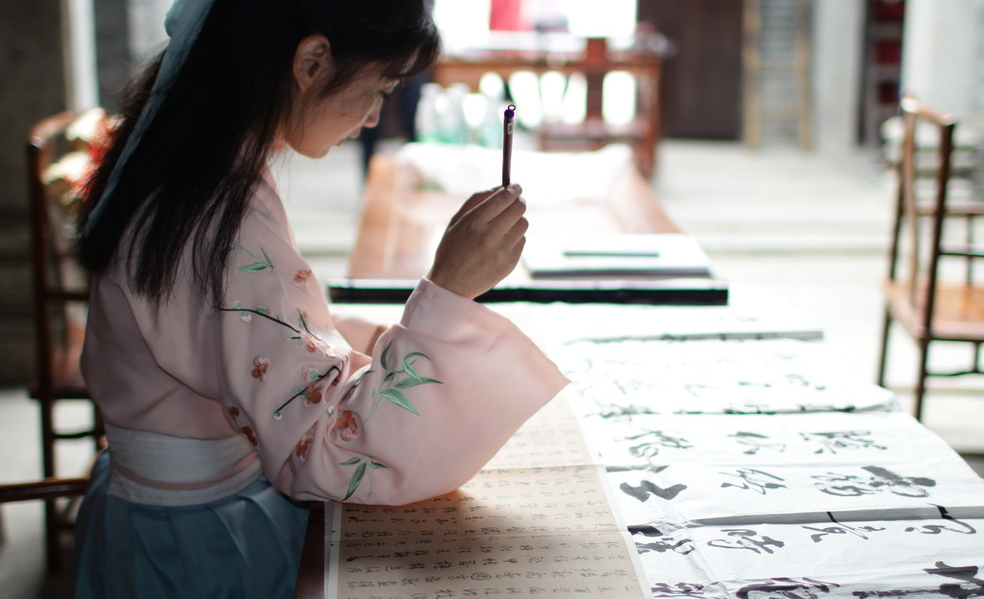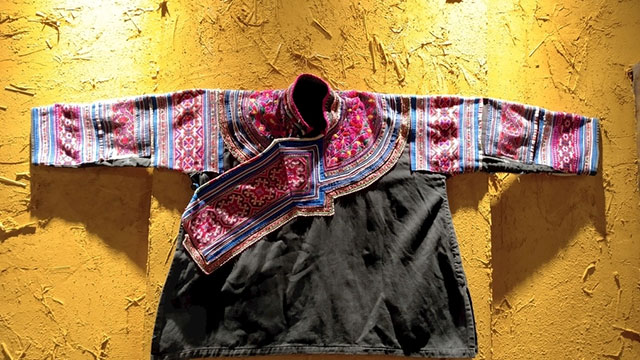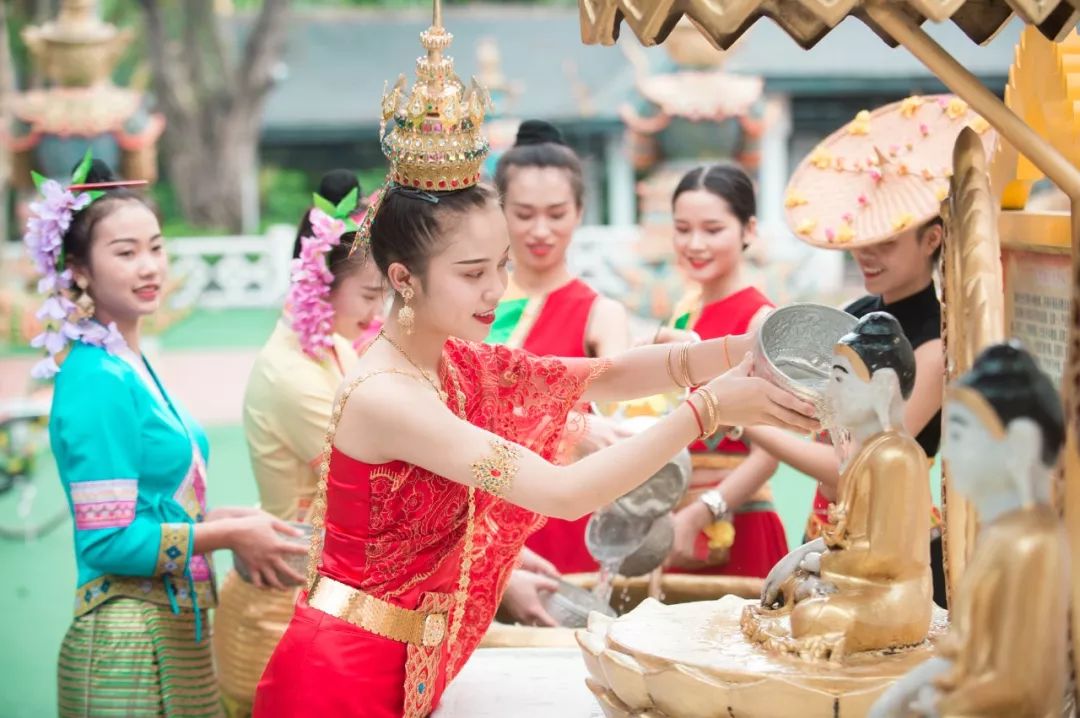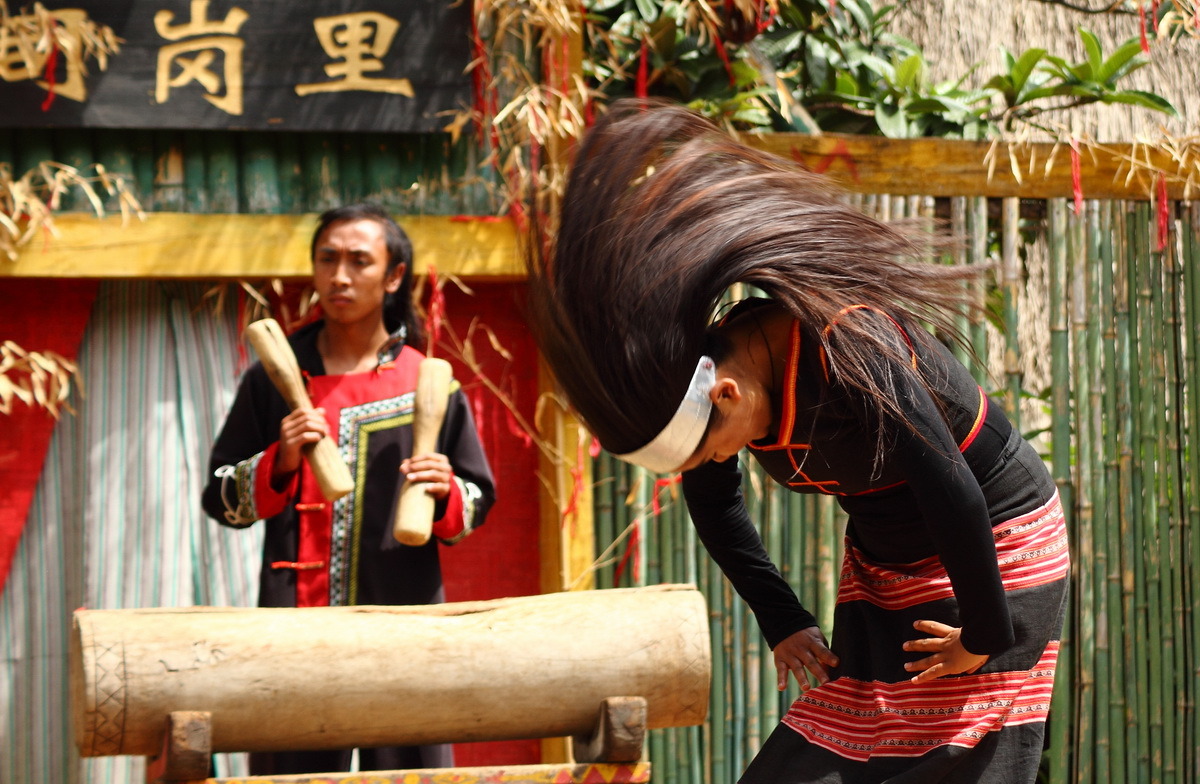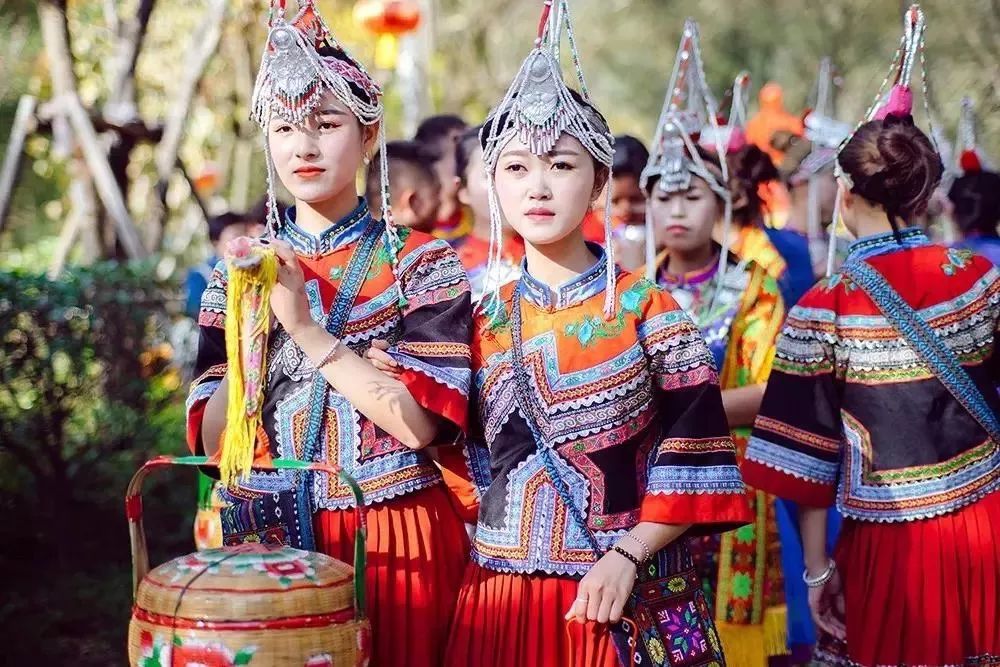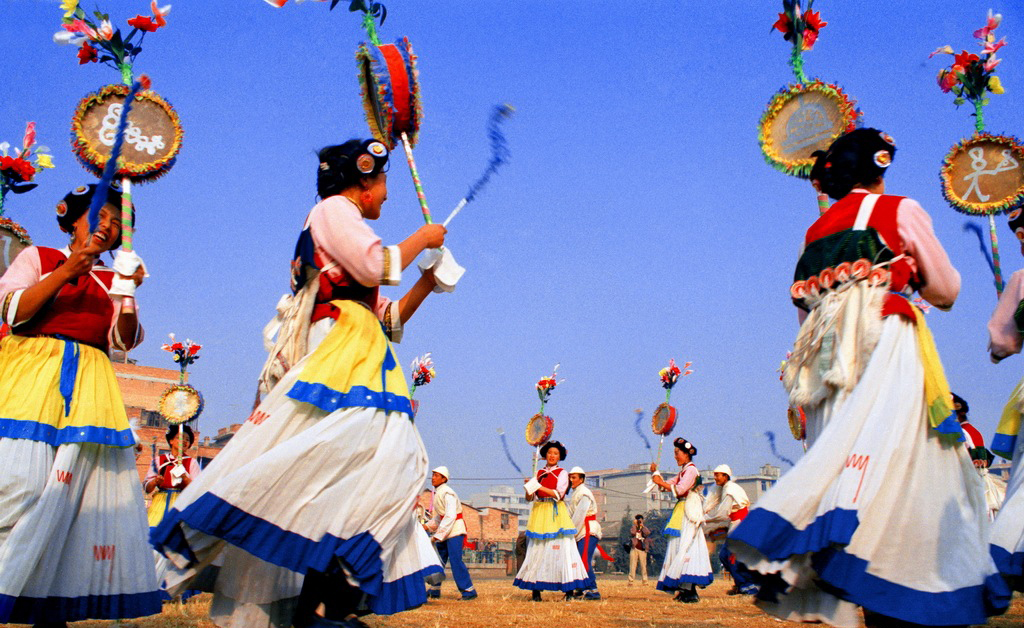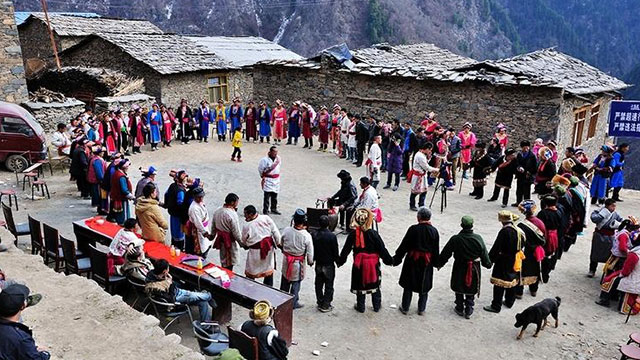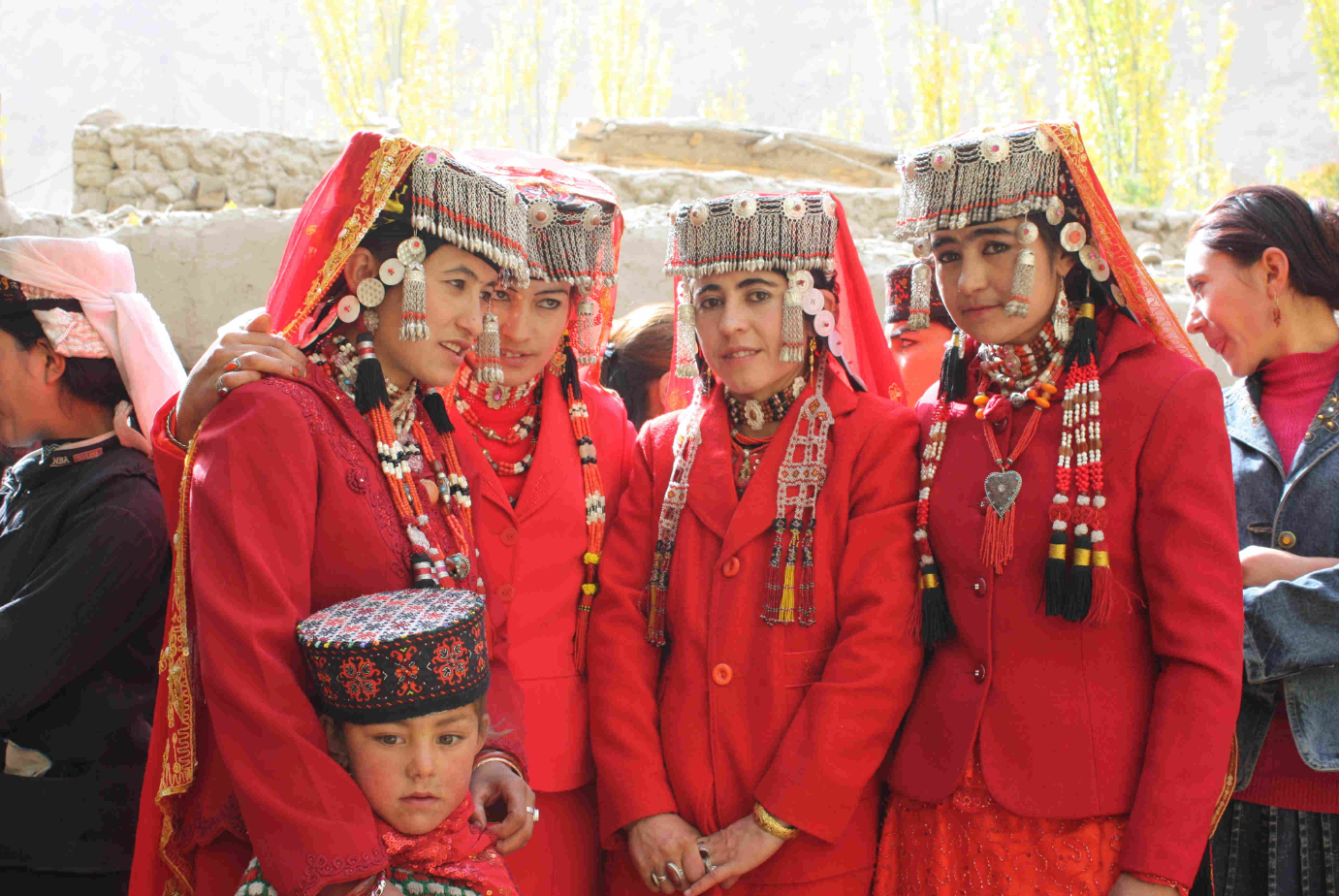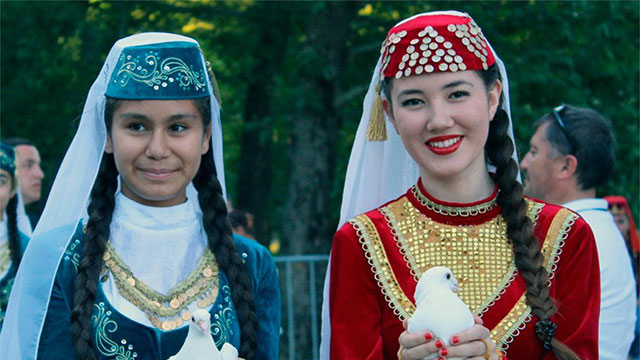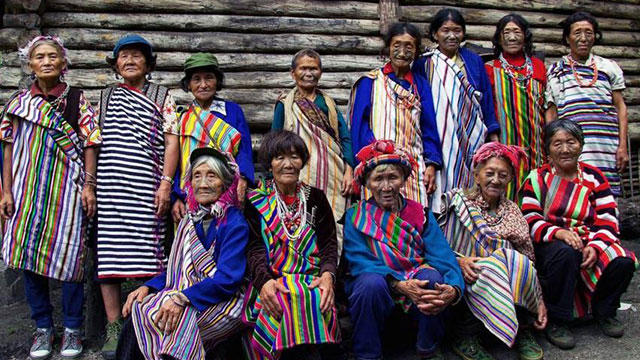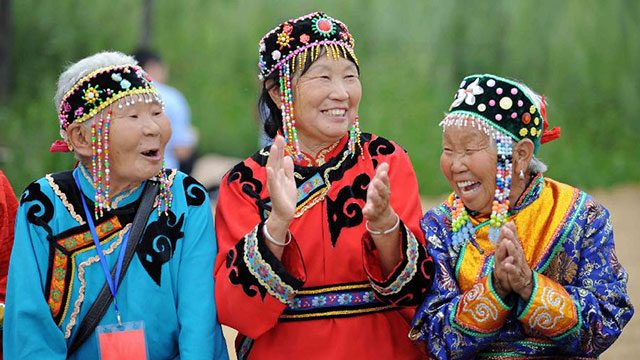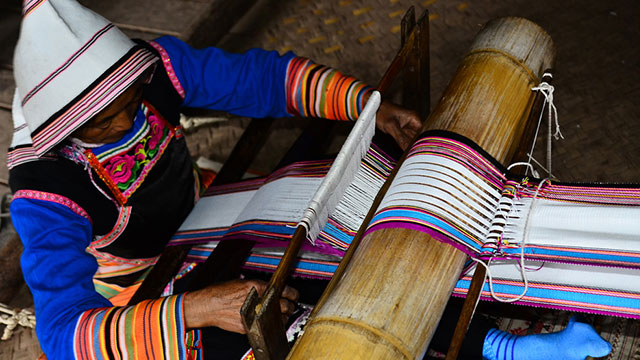Luoba Nationality
Luoba nationality is a minority in China, with a total population of about 600000. Among them, there are more than 2300 people in China controlled areas.
Luoba nationality is mainly distributed in Luoyu area between Chayu in the East and menyu in the West. It is mainly engaged in agriculture and hunting. The Luoba nationality has its own language and basically uses Tibetan. The Luoba language belongs to the Tibetan Burmese language family of the Sino Tibetan language family.
Most of the Luoba people lived in the high mountains and valleys west of the great bend of the Yarlung Zangbo River. Until the mid-20th century, the Luoba society was still in the late stage of primitive society and is still following. The Luoba nationality continues its cultural tradition by relying on oral legends handed down by their ancestors.
Luoba nationality Wiki:
| Chinese name | Lhoba People |
| language | Luoba language |
| written words | Tibetan |
| distribution | China, India |
| population | About 600000 |
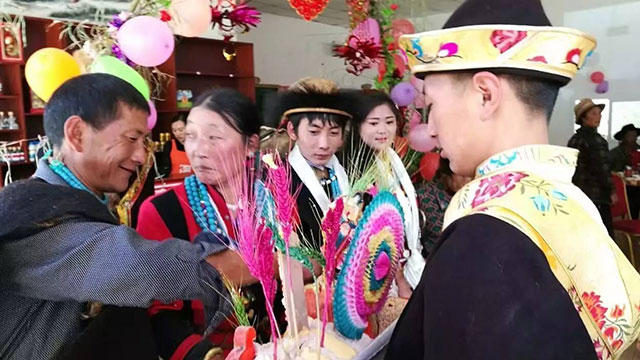
Chinese PinYin : Luo Ba Zu
There are many tribes within the Luoba nationality, mainly including "Bogar", "Ningbo", "Bangbo", "Degen", "ADI", "takin", etc.
"Luoba" is the Tibetan name for them, which means "southerners".
After the founding of new China, it was officially named Luoba nationality according to the actual situation and the wishes of the nation.
origin
Luoyu region has long been a part of Tibet in China. Since ancient times, the ancestors of Luoba nationality have lived in this area. Together with the ancestors of Tibetan and Menba nationalities, they have jointly created the ancient civilization in the Himalayas. The Luoba nationality does not have its own written language, so there is no documentary record of its own history. There are few records about the origin and history of the Luoba nationality in Tibetan and Han documents. Although a group of Chinese archaeologists have obtained a number of valuable archaeological discoveries in the Himalayas since the 1970s, they are not enough to outline the continuous historical track of the activities of the ancestors of the Luoba nationality. Therefore, the ethnic origin of the Luoba nationality can only be explored from the rich ethnic legends of various tribes generated in the Himalayas. A more representative view holds that "the Luoba nationality probably came from one or more of the ancient groups in the southeast of the Qinghai Tibet Plateau", "in history, the Luoba nationality had a historical process of migration from north to south."
According to national myths and legends, relevant ancient Tibetan literature records and archaeological findings, it can be preliminarily considered that Luoba nationality is a combination of ancient indigenous groups in Luoyu area and several ancient groups in the east of Tibet Plateau.
ancient
The contact between the ancestors of Luoba and Tibetan can be seen in various documents, which began in the Tubo Dynasty. When describing the Tibetan territory in the Songzan Gambo era, the Tibetan classic "red history" said: "luoyumen in the south, Xiangxiong in the west, hall in the north and MI xingmi in the East are all under the rule of Tubo".
At the end of the Ming Dynasty and the beginning of the Qing Dynasty, after gradually mastering the local political power in Tibet, the Gelug school further strengthened the management of Luoyu area. In 1680, the fifth Dalai Lama sent a document to the mayjah Lama, which clearly pointed out that "Luoyu people and others are also under my rule". The Tibetan local government, which was ordered by the central dynasty of the Qing Dynasty, implemented administrative management in some areas of Luoyu through its subordinate Zong and Xigu organizations by means of grant and appointment.
In the mid-19th century, the local government of Tibet once put Luoyu area under the jurisdiction of King Bomi. In 1881, King bomitu established Didong sect in Didong Village (now Motuo County), and appointed the sect to administer five "mistakes" and six temples. At the beginning of the 20th century, in order to further consolidate his rule over Luoyu, King bomitu expanded dagangcuo of Didong sect into galangyang sect, and appointed eight zongben here. The local government of Tibet also often sends people to the Luoyu region for inspection. In 1927, the Tibetan local government had a conflict with the king of Bomi, deposed the separatist forces of the king of Bomi, designated the galangyang sect as the territorial East sect, and restored the establishment of Dagang wrong. In Dagang CuO and its south areas, the "wrong book" and "learning book" are appointed to collect taxes. At that time, in order to consolidate the border defense, the Tibetan local government also sent troops to patrol the border at the junction of Southern Luoyu and Assam, India. At that time, the Tibetan local government ruled the Lhoba nationality by directly appointing officials to manage places close to Tibetan areas; For the central and southern parts of Luoyu, the eighteen patriarchal groups in Shannan were instructed to prepare all kinds of production and daily necessities, exchange goods with the Luoba nationality, and consolidate their rule over the Luoba nationality by strengthening material exchanges.
Although the environment in Luoyu area is superior, due to less external contact, the social development of Luoba nationality is relatively slow. Until the 1950s, there was still a strong residue of patriarchal clan system.
Modern times
At the end of the 19th century, the British Invaders wantonly destroyed the old tax collection system of the Luoba people on the edge of Assam and invaded Luoyu area by force, which led to the large-scale armed resistance of the Luoba people. Using superior geographical conditions and ingenious tactics, they defeated the invaders with guns and guns with bows, arrows and knives, and dealt a heavy blow to the incoming enemy. In order to force the Luoba people to surrender, Britain once blocked the vast border line on the left bank of the Yarlung Zangbo River. However, due to the long-term close economic exchanges between the Luoba people and the Tibetan areas in the north, the economic blockade of the British army had no effect, and finally had to revoke the blockade order.
At the end of the 19th century and the beginning of the 20th century, a series of British invasions into Luoyu region also attracted the serious attention of the Chinese government. At that time, Zhao Erfeng, Minister of border affairs, proposed to Emperor Xuantong that Luoba "although it is a wild fan, it is my territory", and that Britain should not sit idly by when invading Chayu and Luoyu. He suggested sending troops to "consolidate our territory" (played by Zhao Erfeng on January 19, the second year of Xuantong), And sent Cheng Fengxiang to lead the troops into Chayu to strengthen the border defense and prevent the further invasion of the British. In 1911, after the minister stationed in Tibet sent Luo Changqi to lead his troops to eliminate the residual forces of the king bomitu, he left a battalion of Tibetan soldiers to defend moto. From 1944 to 1945, the Assam authorities of British India sent people to Luoyu many times to spy on intelligence, which was resolutely resisted by the Luoba people. Since then, Britain has vigorously pursued the "balibala development plan" in the subanshiri River Basin, encroaching on part of the territory of the Luoyu region, causing strong opposition from the Luoba people. The Tibetan local government has also protested and negotiated with the British government many times.
The democratic reform in 1959 completely smashed the shackles of feudal serfdom put around the neck of the Luoba nationality by the three lords, and implemented the political system of people's democratic dictatorship. In Luoba inhabited areas, ethnic autonomous townships and villages have been established successively, including Xiba Luoba autonomous village in Chayu County, naiyu Luoba autonomous Township in Milin County, Damu Luoba autonomous Township in Motuo County, douyu Luoba autonomous Township in Longzi County, etc. These autonomous villages have formulated and implemented economic and cultural development plans and measures in accordance with local conditions, and fully exercised the autonomy and autonomy of the Luoba nationality in politics, economy, culture and education.
It was officially recognized as a single nation in August 1965.
According to the publications compiled by the State Ethnic Affairs Commission in the early 1980s, the number of Luoba nationality has exceeded 300000. According to the natural growth of population, the total population is about 600000. Among them, there are only more than 2300 people in China's actual control areas, and the rest are in Indian occupied areas, which cannot be counted in detail. Therefore, there is also a saying that Luoba nationality is the nation with the least population in China.
Luoba nationality is mainly distributed in Luoyu area in Southeast Tibet, and a few live in Milin, Motuo, Chayu, Longzi and Lang counties. With a population of only more than 2300, it is the nation with the smallest population in China.
Until the mid-20th century, Luoba society was still in the late stage of primitive society. The tribes are mainly engaged in agriculture and still rely on the original production mode of slash and burn. The agricultural production tools are simple and rough. In addition to a small number of iron machetes and long knives, wooden tools are also used in most areas, such as wooden pointed sticks for sowing, wooden shovels for weeding, wooden hoes, etc. Planting corn, dragon claw millet, upland rice and other miscellaneous grains has a low grain yield. In many places, the habit of collecting oak nuts and root tubers to supplement the lack of grain is still maintained. In some areas, starch is still made from the stems of palm plants such as "Daxia" as the main food source. It is generally engaged in hunting. When large animals are captured, they are evenly distributed among ethnic groups or villages. Handicraft industry has not been completely separated from agriculture, but there have been artisans who are also engaged in pottery and iron making, as well as household sidelines such as textile and weaving. Both men and women of the Luoba nationality weave bamboo baskets, bamboo mats, bamboo cages and bamboo ropes. These artifacts, with fine workmanship and various categories, reflect the characteristics of the material culture of the Luoba nationality. They used these items made during the slack season, as well as local products and prey such as Rupi, Coptis chinensis, musk, bear paw, pepper and dyestuff grass. They went to Chayu, Milin, Motuo and other counties to exchange iron tools, salt, wool, clothes, grain, tea and other necessities of life from the Tibetans.
After the founding of new China, the Luoba areas were liberated one after another. After the overthrow of the feudal rule of the three major lords in Tibet in 1959, democratic reforms were carried out one after another, realizing the desire of the Luoba people to be masters of the country. The Luoba people have their own representatives in the Tibet Autonomous Region and the people's governments at the county, district and township levels. With the strong support of the state and other fraternal nationalities, we quickly got rid of the primitive backwardness of economy and culture. Over the past 40 years, the people of Luoba nationality have vigorously carried out farmland and water conservancy capital construction, water diversion and irrigation, intensive tillage and fertilization, abandoned the slash and burn farming habit that has lasted for many years, and greatly increased grain output; Animal husbandry production has also been greatly developed, and people's lives have been significantly improved. In the past, the roads in Luoba area were rugged, the traffic was dangerous and the road was extremely difficult. Now, wide roads and roads have been built from the county to remote villages, and steel cable suspension bridges have been built on the billowing rivers. The traffic situation has been significantly improved. The state has also built new villages, schools and medical stations in Luoba areas. This nation has its own cadres, doctors, writers and sports workers.
Languages
language
The Luoba nationality has its own national language, Luoba language. Luoba language belongs to the Tibetan Burmese language family of the Sino Tibetan language family. The attribution of its language branch has yet to be determined after further investigation and research.
Luoba language is composed of many dialects. Such as: gaer, Bangbo, tanri, Lingbo, Badam, bengni, Shirui, Minrong, etc. 愽 Gar tribal dialect is representative in Luoba language. According to the conclusion of experts' investigation and research, Luoba language is between Tibetan and Jingpo language, and has its own unique language characteristics. The Luoba people living in Milin county and the Luoba people living in Motuo County are hundreds of miles apart. There are not many residents, but the languages they speak have many similarities and similarities.
For a long time, Luoba nationality has had more contacts with Tibetans. Naturally, it will be influenced by Tibetans in language. It will absorb a lot of words from Tibetan to enrich its language. This phenomenon has been more prominent in recent ten years. Because of frequent contact with Tibetans, Luoba learned to talk in Tibetan. Tibetan is also used for teaching in primary schools inhabited by Luoba nationality, and many Tibetan loanwords enter Luoba language. Lhoba youth and newly established cadres have also learned Mandarin and Chinese through radio, film, television or extensive contact with cadres of all ethnic groups in the mainland. Therefore, some Chinese have borrowed Lhoba language or absorbed Chinese loanwords through Tibetan to enrich the modern vocabulary of Lhoba language.
written words
The Luoba people do not have the cultural order created by their own nation. Before Tibet's democratic reform, folk writing, recording events, staying in the wood carving (or bamboo carving), rope tying stage, and after the democratic reform, some young people who entered school began to learn and use the Tibetan and Chinese languages. At present, Tibetan and Chinese are the most popular languages in Luoba areas.
literature
The literature of Luoba nationality is mainly the folk oral literature inherited from generation to generation. Because the Luoba nationality has experienced a long primitive society in its historical development, the original literary characteristics of Luoba nationality literature are extremely rich. Myth is a fully developed and well preserved category in Luoba literature. Among them, there are all kinds of myths, including "creation myth", "origin myth of all things", "human birth myth", "ancestor myth" and "hero myth". The nine suns is a groundbreaking myth, which tells the story of the birth of nine suns due to the marriage between heaven and earth when the world appeared, and reflects the primitive human concept of celestial bodies. The myth of "three sacred cows" says that everything on the earth is transformed from the fur, bones, blood and internal organs of the dead iron sacred cow. There are different myths about the origin of human beings. First, they believe that human beings are the offspring of a pair of children of mother earth, and second, they believe that human beings are formed only after a group of macaques eat food cooked by fire. The long myth "abadani" is a famous ancestor myth of Luoba nationality. It is composed of dozens of different and related stories. It comprehensively and vividly shows the marriage form, family form, social relations, production level, religious worship and so on in the social development stage of Luoba patrilineal clan. Heroic myths such as abin Kenge, pusudong and Roman Dadang vividly describe the arduous struggle between primitive humans and nature. The folklore of the Luoba nationality is also closely related to the myth of the nationality. The legend about the national history "four sons of abadani" and the legend about inter ethnic exchanges "bin bird chasing horse" are widely spread among the people. Among the folk stories of Luoba nationality, animal stories account for a large proportion. Stories such as bat, Pulsatilla and why monkey's ass is red have profound implications and tortuously express the social relations in the world. The folk songs of Luoba nationality are divided into "labor song", "love song", "custom song" and "ancient history song" according to their contents; In terms of song style, it can be divided into "Jiari" style and "Boli" style. The "Jiari" style folk songs are mostly used in occasions of praise and prayer, with long lines and lining words, while the "Boli" style folk songs are often sung on festive occasions, with cheerful and clear style, short length and rich changes.
religious belief
The traditional way of production and life of the Luoba nationality is the realistic soil for the birth of the original religious belief of the Luoba nationality. Because the production environment of each clan and tribe is different, the development is not very balanced, and the value orientation is also different, the primitive religious beliefs among tribes also have complex and diverse characteristics.
In some concepts of Loba, there is no obvious distinction between the concepts of ghost and God. They collectively referred to "ghosts", "elves", "gods" and "ghosts" as "Wuyou", that is, "elves" or "ghosts". They believe that "Wuyou" can be attached to any natural object and person, so that natural objects and people have the attributes of "spirit" and "ghost". There are many kinds of "Wuyou", which exist in all things and are everywhere, affecting all fields of people's production and life.
Nature worship: from the historical development of the primitive religion of the Luoba nationality, nature worship is the earliest belief and worship of the ancestors of the Luoba nationality. In people's concept, many natural objects and natural phenomena in nature, such as sun, moon and stars, wind, rain and lightning, mountains and trees, have gods. Such gods have their own division of labor, perform their respective duties and are not subordinate to each other. They have become the objects of worship of the Luoba people.
Totem worship: because Luoba people do not understand their own reproductive law, they associate human reproduction with some animals, plants and even tools used in nature, and regard one of them as a tool to use, and regard one of them as having a special and mysterious blood relationship with themselves. As their ancestors, totem worship appeared. The totems believed and worshipped by various tribes of Luoba nationality are different, including more than 30 kinds, such as tiger, leopard, bison, wild bear, bear, monkey, otter, pig, cow, sheep, dog, eagle, crow, cuckoo, pigeon, snake, sun, moon and knife.
Ancestor worship: This is another important form of primitive religious belief after the patriarchal clan system and the surrogate clan system of Luoba nationality. It is developed on the basis of the concept of immortality of the soul. In essence, it is also the worship of ghosts.
Witchcraft:
Witchcraft is one of the primitive religions of the Luoba nationality. The Lhoba say wizards are the only people who can talk to ghosts. Wizards are not professional religious people and do not enjoy extraordinary authority, but when there are no religious activities, they still live an ordinary life: production and labor, birth and childbirth. There are two kinds of shamans of the Luoba nationality, FenMi and nubu.
Witchcraft is an important and regular activity of wizards. There are many sacrificial activities of Luoba nationality, and witchcraft is accompanied at large-scale sacrificial ceremonies. In case of natural disaster, human robbery, disease, plague, theft, revenge and battle, witchcraft should be held, and rely on witchcraft to drive away evil and punish evil, so as to eliminate disasters and turn good luck. In history, the Luoba people who have been constantly disturbed by disasters have made great efforts to explore and seek spiritual liberation in the witch wind and rain. There are quite complex rituals in witchcraft activities such as prayer, soul summoning, Exorcism and curse. In addition to certain behaviors, witchcraft also has performances, singing, modeling, depiction and some magic tools, which have had a significant impact on the myths, songs, music, dance, painting, sculpture, clothing and even primitive science and technology of the Luoba nationality.
full name
Father son joint name system: that is, the names of male members of the clan are connected with their father's name, and their father's name is connected with their grandfather's name. Each person's name is composed of two parts, with the first word as the father's name and the last word as the son's name, so as to strictly distinguish them from generation to generation and form a pedigree. This father son naming system can remember or say the ancestral names of five to ten generations among the men of the 愽 Gar tribe. Know who is the closest relative within the clan. The father and son are arranged by name, but the clan outside marriage is implemented in the tribe, and the daughter has to marry out of the clan. Therefore, it does not occupy a major position in the pedigree, and the male name is the main name. The inheritance of the family is also completely continued by the paternal line and has become the basic cell of the society.
The father son joint name system is an important means to maintain the clan system. With this system, in the same clan, people can determine their blood relationship according to their names and data, so as to clarify their rights and obligations. Therefore, memorizing the clan pedigree is a basic education for clan members.
Clothes & Accessories
The costumes of Luoba nationality are different in different regions, but they are very distinctive. In the long-term development process, Luoba people have formed an aesthetic concept of praising and praising strength and courage, which is prominently reflected in their costumes. In particular, the waist ornaments and eardrums are extremely particular. The waist ornaments are made of animal skin. The bag surface is decorated with seashells. The waist is also equipped with chains, colored beads, leaders, small copper spoon chains, sickles, beads, snuff bottles, seals and other accessories.
Women of Luoba nationality like to wear a linen double breasted collarless narrow sleeved jacket with a calf leather outside, a tight tube skirt slightly above the knee around the lower body, leg wraps around the lower legs, and straps at both ends. They attach great importance to wearing decorations. In addition to silver and copper bracelets and rings, there are dozens of circles of blue and white bead necklaces, and many seashells strung into balls on their waist clothes. The ornaments on Luoba women weigh several kilograms and can be filled with a small bamboo basket. These decorations are the exchange income of each family for many years and the symbol of family wealth. During festivals, women dress up one by one and compare themselves with each other.
Men's clothes fully show the characteristics of hunting life in the mountains and forests. They usually wear black hoods and camisoles made of wool, which are long to the abdomen. He wore a piece of buffalo hide on his back and tied it to his shoulders with a leather strap. A Tibetan long robe is inside. The hats of Bogar tribal men are even more unique. They are pressed into a circle with bear skin, similar to steel helmets with edges. There is a hairy bear skin ring over the brim of the hat, and the bear hair is spread around the canopy. And a square bear skin on the back of the hat. This kind of bear skin hat is very tough and can confuse prey when hunting. When a man goes out, he carries a bow and arrow on his back and a waist knife. His tall body is especially powerful and handsome with other shining decorations.
Both men and women of Luoba nationality like to wear decorations. Men wear bracelets, Bamboo Earrings, necklaces, bows, arrows, long knives and other things around their waist. Women especially like to wear colorful necklace beads. Women in full dress sometimes wear more than ten to dozens of beads on their necks. Together with bracelets, earrings, copper bells, silver coins, iron chains, knives, sickles, seashells and other accessories, they weigh more than ten kilograms and can fill a bamboo basket. They are regarded as a symbol of family wealth and an indispensable dowry. Whenever the festival comes, women dress up, dance and sing to each other.
The ethnic costumes of Luoba nationality have been listed in the national intangible cultural heritage list.
music
The music of Luoba nationality includes vocal music and instrumental music. Vocal music is a singing form composed of poetry and certain tunes. The most representative is Jiajin, the oldest folk tune, which is popular in various tribes. It mainly describes the national origin and migration history. In addition, there are a large number of love songs, such as wedding crying song and mourning song, which are often touched by the scenery in the traditional tunes, improvised and sung, and exported into songs. The general tone is very simple and slow, the rhythm is not strict, slow and solemn, and each sentence usually has four beats.
There are four kinds of folk musical instruments of Luoba Nationality: whistle leaf, bamboo mouthstring, flute and erhu.
Luoba folk songs can be divided into several categories: dance song "Jiayi", which is often sung collectively on festivals, weddings and festive occasions, singing and dancing at the same time; The folk song "Boli", which reflects life customs, includes "wine song", "Crying Marriage song", etc; "Yali" is the tune of a wizard chanting scriptures; "Moon" is a song sung by soldiers before they go to war. The most representative of Luoba nationality is "Jiajin", the oldest folk tune, which is popular in all tribes and mainly focuses on the description of ethnic origin and migration history.
dance
The dance of Luoba nationality is rooted in life practice. Its movements mostly simulate the forms and movements of animals, birds and animals, as well as the happy scenes of people capturing and domesticating animals. For example, the dance "cattle training" by the gaer people shows the actions of the Loba people in chasing, capturing and taming bulls. There are also large-scale group dances of men and women singing and dancing, which are bright and lively, vigorous and powerful dance steps and warm atmosphere.
Architecture
The traditional houses of Luoba nationality are stone and wood blockhouses, which are firm and durable and have good defense functions. They painted many patterns on the door or on the wall of the house to avoid evil and seek blessing. The animal head hanging on the wall is not only a symbol of wealth, but also a show off of the hunter's hunting ability.
Luoyu area has rugged mountain roads, high mountains and deep valleys, blocked by rivers and rapid water flow, so it is extremely difficult to contact the outside world. Before the founding of new China, except for trails, bridges and wooden ladders and vines for people to climb, the Luoba people had no vehicles, horses, boats and other means of transportation, and all depended on walking. To adapt to this environment, the people of Luoba nationality have created a variety of unique bridge building technologies. Common bridges include single wooden bridge, bamboo wooden bridge, sliding cable bridge, rattan bridge, etc. among them, rattan bridge is the most distinctive and can best show the bridge building skills of Luoba nationality.
Rattan bridge is a tubular suspension bridge made of rattan. It is mostly erected on the traffic arteries with deep water, wide river and steep terrain. The bridge is generally tens of meters above the water surface, with a length of 50 or 60 meters and a length of 200 or 300 meters. From a distance, rattan bridges soar on the river like flying dragons, forming a unique landscape in Luoyu area. Dexing rattan bridge in Motuo County has a history of more than 300 years. It is built in the section of Yarlung Zangbo River Grand Canyon. The bridge is more than 50 meters away from the river and more than 150 meters long. It is like a dragon flying around the mountains and mountains on the river. Its grandeur and spectacular reflects the superb bridge building art of Luoba nationality.
habits and customs
Rough clothes. Luoba nationality has long lived in the plateau and Canyon, and their clothes also show their rough and unrestrained character. Making full use of wild plant fiber and animal skin as raw materials is a prominent feature of Luoba clothing. In the past, a kind of grass skirt called "Jiebang" was popular in Luoba areas, which was woven from the straw of chicken claw valley. Now women wear earth cloth skirts and habitually put a straw skirt outside to protect the cloth skirt.
Long knives and bows and arrows. Wearing long knives is a hobby of Luoba men. It is not only an ornament to show masculinity, driven by natural conditions, it has also become a basic tool and important weapon in people's daily life. Luoba people not only use it to resist the attacks of wild animals and poisonous insects, but also use it to cut bamboo and wood, build rattan bridges, build houses, even cut hair and cut animal skins... In addition to long knives, bows and arrows are the main tools for Luoba men to hunt.
festival
The Luoba nationality has no clear year, month and festival orders and a careful calendar. The determination of the date is mostly based on the change of the circle and vacancy of the moon, and the month and festival are determined by referring to the seasonal change of phenological knowledge. In some places, festivals are arranged by wizards.
"Xudulong": This is a festival for Luoba people in many areas to commemorate and mark festivals. Its main content is to pray for a good harvest. The moon changes twelve times to represent a year. Generally, after the Xudu Dragon Festival, the agricultural time comes.
"Niu Festival": "Niu" means "start sowing", which can be translated as "sowing Festival". The specific date shall be determined by each household.
Neptune day: "Neptune" means "build a small house in the field". This is a festival prepared by the bengni tribe for summer crops.
Andi Ruomu Festival: "andI Ruomu" means "Celebrating the completion of early rice cutting".
Longde Festival: a celebration held within the clan to pray for happiness and prosperity. It will be held once every three years, and the specific date will be determined by newbu's divination of killing chicken and watching liver.
"Donggeng Valley Milk Wood": This is a grand new year's festival, which is on December 15 of the Tibetan calendar. After a year of hard work, it means celebrating the harvest.
The festival activities of the Luoba nationality not only have the nature of wishing and celebrating a bumper harvest, but also have the meaning of safeguarding the prosperity of the population and blessing people to be harmed by ghosts, eliminating disasters and ensuring peace. In recent decades, Tibetan and Han festivals have also become inevitable festivals for Luoba people.
Custom taboo
There are sacred stones in Luoba village, and you are not allowed to touch, move or sit on them; There are sacred trees in every village, which shall not be cut down. Every year, the group turns around the sacred stone and sacred tree three times, kills chickens, puts food and wine for sacrifice. Most tribal people worship the abrupt boulders and strange trees and think that they are the habitat of stone gods and tree gods. During the Spring Festival, spring sowing and autumn harvest, they have to carry out three sacrificial activities, each time with chicken hunting. The villagers regard these stones and trees as monsters and are extremely afraid.
When castrating pigs, the owner plants fresh branches at the door. Strangers are not allowed to enter for three days. During this period, they are not allowed to borrow things, and they are not allowed to take things such as skin and hair from the stove. The boatman is not allowed to get close to the stove, firewood and stove within three days, and is not allowed to say the words "dead" and "None".
Taboo trees shall be planted in front of people giving birth, cattle, pigs and dogs giving birth, people getting sick and hunting, and strangers shall not be allowed to enter within three days; When relatives and friends from other villages come, they should get the consent of the host at the door and say "ghosts don't enter", and the host will accompany the guests into the house. Entering without the owner's consent is regarded as bringing ghosts and disrespect to the owner, and will be driven away and even cause armed struggle.
Hunting dogs have made great contributions to the hunting of Luoba people, who regard dogs as sons. Luoba's family has more than ten hunting dogs. They don't bite or bark wildly. They are very kind to people and fierce to animals. Guests are not allowed to beat or scold dogs, otherwise they will be expelled.
When repairing the house, the owner will shout three times: "people and animals are healthy, free from disease, healthy from generation to generation, and the grain warehouse is full". Then sprinkle the mixed grain into the sky and do it very seriously. Don't laugh at it.
Pigs are regarded as the leader of livestock and the main livestock for frequent sacrifice. Therefore, they are favored. Urination and defecation are strictly prohibited in pig's grains.
Deification and worship of animals is a common phenomenon of primitive religion. Animals are the main objects people rely on from bottom to top, but some people are in opposition to people. People's sacrifices and taboos to poisonous snakes and beasts are more frequent. Some tribal snakes and tigers are totems and are strictly forbidden to hurt. Being bitten by a poisonous snake, regardless of distance, relatives and friends, they take the initiative to stop working for one day, and are forbidden to go to places where vines grow, and to eat vines like apples, spicy food and some meat.
There are more taboos in agricultural production. From slash and burn cultivation to autumn harvest, five collective sacrifices and three individual sacrifices are required. Labor is prohibited on the day of sacrifice, and violators are whipped by leaders.
The Luoba people are an unlocked people. Stealing and lying are the ugliest and most hateful things in the world. If such things happen, first, education; Second, repayment; Third, drive; For recidivists, kill them.
Dream also has many taboos: dream of killing cattle, slaughtering pigs, the sun setting, marrying a daughter-in-law, falling into the water, falling off a cliff, being bitten by snakes, rats biting clothes, cattle arriving at the frame, etc., which indicates that the family will die, disaster, and don't go out the next day. Dream of vines, be careful for ten days, for fear of disputes. On the contrary, dreaming of dead people is a good omen.
The Luoba people also have the habit of recording zodiac signs. The twelve zodiac signs represent twelve years. Rats and horses, dogs and dragons, pigs and snakes, chickens and rabbits, monkeys and tigers, cattle and sheep are mutually exclusive and cannot be matched.
Food customs
Lhoba people's life and customs are deeply influenced by Tibetans. Their daily diet and food preparation methods are basically the same as those in Tibetan agricultural areas. He likes to eat roast meat, dried meat, milk dregs and buckwheat cakes, especially rice lumps stirred with corn, and chili peppers. Vegetables include cabbage, rape, pumpkin, turnip and potatoes. They are generally addicted to alcohol. In addition to highland barley wine, they often drink corn wine. Luoba people are usually used to preparing poisons with wild plants, painting them on arrows and shooting wild animals. Hunting activities are mostly carried out collectively, and the wild animals hunted are divided equally.
Due to the scattered residence and inconvenient transportation of Luoba nationality, the dates of annual festivals vary from place to place, which are generally set after the annual labor. Therefore, celebrating the New Year festival includes celebrating the harvest, welcoming the new year and saying goodbye to the old. On the eve of the new year's day, every family has to pound rice to make wine, kill pigs and sheep, and rich people have to kill cattle. The Luoba people in Shimon call the New Year Festival "tiaogeng Valley milk art" festival. At that time, the slaughtered pigs, cattle and mutton are cut into pieces with their skins and distributed to the people of the same family. Many places still retain the ancient habit of "clan gathering". During the festival, the residents of the village should bring their own wine and meat. The men, women and children of the whole village sit around on the ground, or drink or eat meat. They sing and laugh constantly and carry out various recreational activities. Before the guests eat, the host should first drink a glass of wine and take a bite of rice to show that the food is non-toxic and sincere to the guests. If the guests come from afar, the Luoba nationality will also entertain them with their favorite dry meat, barbecue, milk residue, corn wine, buckwheat cake and pepper.
marriage custom
It is the parents who decide the life of their children.
At the wedding, the bride and groom had to kill chickens three times. For the first time, he killed two chickens already hanging on the new wooden door hanging beam in front of the groom's wooden building. After killing the chicken, take out the chicken liver and give it to wizard Loba. The wizard licked the chicken liver with his tongue, and then licked the chicken liver, so as to determine whether the new couple's future destiny is good or bad, and whether their life expectancy is long or short. The second time, kill the chicken hanging on the bamboo rack made of eight bamboo poles in the yard, or take out the liver and give it to the wizard. The wizard thus concluded the order and number of children the new couple will have in the future. The third time, kill two chickens in the bridegroom's house. The Luoba women with children and women introduced the new couple into the wooden building of the bridegroom's house and began to kill chickens. The difference this time is to kill a pig first and then a chicken.
Burial custom
Luoba families pay special attention to mourning for the dead, trying to comfort the dead and express their condolences and remembrance. Most of the Luoba people use earth burial and tree burial. The rites and customs are quite complex and there are many taboos to show their filial piety.
Most of the Luoba people practice earth burial. Because there is gold in the earth, it is also called gold burial. Dig a rectangular tomb pit, smash it with stones without leaving footprints, and put it into the rattan mat and square wooden pillow laid by the dead.
After a patient dies, it is usually taken care of by the person carrying the corpse. Turn the dead man's head outward to show that he has "gone". When a person dies, it is forbidden to say death. It is generally called "gone", "old", "dead", or "no". When bathing the dead, the bath water is generally washed from head to bottom with wormwood leaves and cinnamon leaves. The shroud doesn't need fur and silk. It's afraid of becoming animals in the next life. The number of clothes and trousers should not be single or double. Most of them are 2 tops and 4 trouser skirts, which should be mainly cotton. When entering the tomb, we should untie the rope on the dead, straighten his body and put it in the pit with his head facing west. The funerary objects are all things he used before his death, such as bows and arrows, decorations, utensils, etc. Wooden fences are erected around the cemetery, covered with straw sheds, and the animal horns hunted by hunters are placed in the shed. Rice and wine are delivered once every morning and evening, usually for 7 days or a month. Burn a bonfire every night.
Tree burial is called celestial burial. The treatment of the corpse is the same as that of burial, and the skin and flesh shall not be exposed. The fetal body was placed in the rattan basket he had used and hung on the tree branch at the head of the village according to the wishes of the deceased. Put up a straw shed to protect yourself from the rain and sun. Luoba people say that there are elves in everything in the world. Although people die and their bodies rot and become insects, their souls go to the "paradise" and become another thing with elves, such as hanging burial, so that they can be reincarnated early and quickly, and become rich and good people.
The corpse bearers of several burial methods are generally served by relatives. When the parents die, they will be taken care of by their sons, and sent by their wives and husbands. If there is no suitable person in the family, they will be carried by relatives and friends, or invited or designated by the deceased when he dies. The person who delivers the corpse and the deceased belong to the same family, have the same grams and age are not allowed to carry the corpse. If there is no other person, the corpse must be carried by the above personnel. Then, the corpse can only be carried by smearing the right face white and the left face black, hanging a woman's necklace, rolling the right trouser leg outside the thigh and not rolling the left leg. In mourning, we should ask people to kill chickens to make divination and choose auspicious days. On the day of burial, the whole village stopped working for one day and came to the funeral and comfort. The way to carry the corpse is back-to-back. The corpse carrying person holds a thorn strip and beats while walking, so as not to be followed by ghosts.
One month after burial, the married daughter, separated son and relatives brought wine, meat and chicken to the deceased's home for comfort. A year later, the dead man left his family to catch a cow. 2 cattle were found in the house. Every village in the village brought Baijiu and Baijiu to the table. The ox horn was sent to the grave as a sign of mourning.
After the death of their parents and elders, their children can't get married without earrings and other decorations within a year, their wives can't have their hair cut within a year, tie a red line in front of their forehead, and can't arrange flowers on their heads or remarry.
When the corpse returns, the owner fires a fire at the door, dips a few rice noodles and Baijiu on a tree, roasts on the fire for a while, and then pours three times on the corpse man, then carries on the corpse person to wash his face and wash his hands. After entering the house, he will only sit in the sleeping place of the dead man, and his hands can not touch the favorite pet stove stone. Because it is the embodiment of the kitchen god, he will only sleep at the dead's place at night. The words of "less", "None" and "death" shall not be spoken within three days. On the third day, the corpse carrying people can move freely as their families. On the third and tenth days after carrying the corpse, the corpse bearer should go down to the river to take a bath, and only after the 15th day can he go up the mountain to hunt. Within a year, corpse bearers cannot eat potatoes, peas, walnuts, peaches, radishes and livestock hooves. When eating, the person carrying the corpse should first pray and invite the soul of the dead to eat. Within a year, people carrying corpses can't take the main road, they should take the trail, they should give way to pedestrians, they can't laugh, they can't look at other people's faces. In short, people are taboo to carry corpses. They think they are cheap, unlucky and possessed by Yin ghosts. Therefore, we should avoid and dislike him everywhere and treat him coldly. Therefore, most people don't want to carry corpses.
Abadani (unknown year of birth and death), also known as abnida or abnibo. The legendary ancestors of all tribes of the Luoba nationality. According to the legend of Bogar tribe in mirin County, Tibet, after the combination of heavenly Father and earth mother, Jindong gave birth to Jindong, Jindong gave birth to Dongri, and Dongri gave birth to two sons, Rini and riluo, namely abadani and abadaluo. Abadani is the ancestor of Luoba nationality, and abadaluo is the ancestor of Tibetan nationality. "ABA" means father and ancestor, and "Dani" is its name. He used to live in Gongbu and other places in Tibet, but later moved to Milin. Abadani has three sons. After they got married, they moved out to form different tribes. The eldest son dangbang led his sons Bangmeng and bangmu to the southwest and arrived in today's Degen area. His descendants were Degen Luo people; The second son should take his sons Jianluo and Jianbo eastward along the Yarlung Zangbo River to Motuo and other places. His descendants are Badam, Minrong and other tribal people; The third son, rigu and RIYANG, led by the third son, lived in nayushan valley. When they arrived at dangbo and galbo, they moved south to manigang and its south. Their descendants are now Bogar, lengbo and Bangbo. The legend of abadani is quite extensive. It is said that abadani is its ancestor in the Jialong, bengni, bengru, Sulong and other tribes of Luoba nationality.
Kaisa (? - 1855), a Chayu people in Tibet, was a famous leader of the Lhoba tribe against colonial aggression in the 19th century. After the Opium War, the Western powers opened the door of China with cannons, making China a semi colonial and semi feudal society. The Qing government was corrupt and incompetent, controlled and divided by Western powers, and its strength to defend Tibet was greatly weakened. The Western powers also concluded many unequal treaties with China, from which they seized various privileges such as "missionary", "travel" and "trade". During this period, Britain, Russia, France and other countries came to Tibet to carry out aggressive activities in the name of "travel" and "trade". For example, in 1851, French priest M. Garak, in the name of "preaching", entered varong, Luoyu, Chayu and other places in Tibet to collect intelligence and do whatever he wanted, which seriously hurt the national feelings and interests of the local Luoba people and aroused the strong dissatisfaction of the Luoba people. In 1854, Garak entered the Chayu Duqu area and destroyed local customs, which further angered the Luoba people. At this time, Kaisa, the leader of Yidu tribe of Luoba nationality, angrily led the crowd to execute Garak.
Daji (1934 ~), Luoba nationality, mirin people in Tibet. He joined the Communist Party of China in 1973 and served as deputy head of mirin qiangna Township, director of the reform committee of qiangna people's commune, head of qiangna Township and Secretary of the Party branch of qiangna township of the Communist Party of China. He is a deputy to the fifth and Sixth National People's Congress.
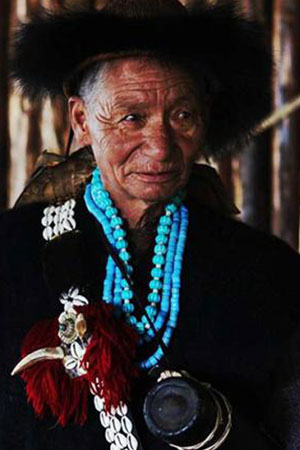
Luoba nationality
-
Han Nationality
The Han nationality is the main ethnic group in China. The Han nationality, formerly known as Han people, was named after China's Han Dynasty, which used to be called "Huaxia" or "Zhuxia". Whether in politics, military affairs, philoso. Han Zu
Views: 153 Time 2021-03-07 -
Zhuang Nationality
The Zhuang nationality (Zhuang: bouxcuengh, English: bourau), formerly known as the Zhu long nationality, is a minority with the largest population in China. The national language is Zhuang, belonging to the Zhuang Dai branch of the Zhuang Dong nationalit. Zhuang Zu
Views: 35 Time 2021-03-07 -
Dai Nationality
Dai nationality (Roman letter: Dai), also known as Thai nationality (Thai: Pang Pang, Roman letter: Thai), Shan nationality (Roman letter: Shan), etc. the national language is Dai (Thai), belonging to the Zhuang Dai branch of Zhuang Dong nationality of Si. Dai Zu
Views: 24 Time 2021-03-07 -
Wa Nationality
Wa nationality is one of the ethnic minorities in China and Myanmar. The national language is wa language, belonging to the wa German branch of the mon Khmer language family of the South Asian language family. There is no common language. People use physi. Wa Zu
Views: 22 Time 2021-03-07 -
She Nationality
She nationality is one of the ethnic minorities with a small population in China, with a total population of 708651 (2010). It is distributed in some mountainous areas in more than 80 counties (cities) in Fujian, Zhejiang, Jiangxi, Guangdong, Guizhou, Anh. She Zu
Views: 19 Time 2021-03-07 -
Naxi Nationality
Naxi nationality is one of 56 ethnic groups in China and one of the unique ethnic groups in Yunnan. Most of them live in Lijiang City in Northwest Yunnan, the rest are distributed in other counties and cities in Yunnan and Yanyuan, Yanbian, Muli and other. Na Xi Zu
Views: 44 Time 2021-03-07 -
Qiang Nationality
Qiang nationality originates from ancient Qiang and is an ancient nationality in Western China. Ancient Qiang has a broad and far-reaching impact on China's historical development and the formation of the Chinese nation. The national language is Qiang lan. Qiang Zu
Views: 24 Time 2021-03-07 -
Tajik Nationality
Tajik belongs to the Europa Indian Mediterranean type. The national language is Tajik, including two dialects of selekkur and wahan. It belongs to the Pamir branch of the Iranian language family of the Indo European language family.. Ta Ji Ke Zu
Views: 24 Time 2021-03-07 -
Tatar Nationality
The Tatar nationality is a Siberian type of Mongolian race. It has its own language. It belongs to the West Hungarian branch of the Turkic language family of Altai language family. It has words based on Arabic characters and its main belief is Islam.. Ta Ta Er Zu
Views: 81 Time 2021-03-07 -
Dulong Nationality
Dulong nationality is one of the ethnic minorities with a small population in China and the least populous nationality in Yunnan Province. It uses Dulong language and has no national characters.. Du Long Zu
Views: 49 Time 2021-03-07 -
Oroqen Nationality
Oroqen nationality is one of the nationalities with the least population in Northeast China. According to the fifth national census in 2000, the population of Oroqen nationality is 8196. Oroqen language belongs to the Tungusic branch of man Tungusic langu. E Lun Chun Zu
Views: 83 Time 2021-03-07 -
Jinuo Nationality
Jino nationality is one of the seven unique nationalities with a small population in Yunnan Province. The national language is Jino language. It belongs to the Yi language branch of the Tibetan Burmese language family of the Sino Tibetan language family. . Ji Nuo Zu
Views: 103 Time 2021-03-07
